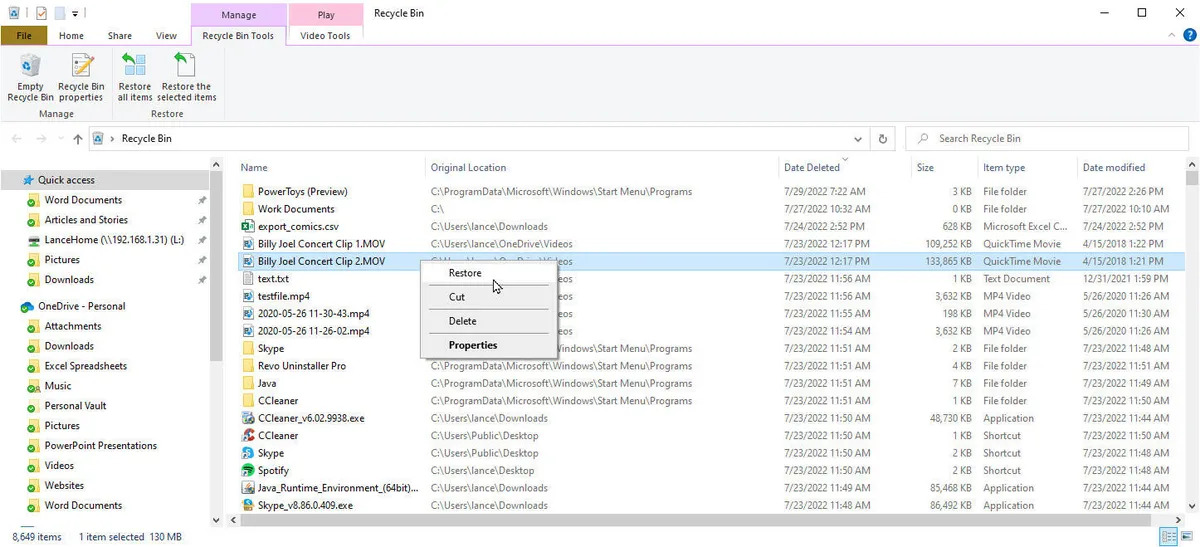
Making the Physical Connections for LANs – Part 1
August 22, 2022
How to recover deleted files in Windows 10 & 11.
August 26, 2022Part 2 will cover the factors influencing device selection.
Factors for Selecting a Switch
There are numerous factors that need consideration for the selection of a switch, but we will consider the two most critical topics.
Cost
A switch’s price will depend on its capacity and features. Capacity is determined by the number and types of ports and switching speed. Its network management capabilities, security technologies, and advanced switching technologies will also impact cost.
A basic cost-per-port calculation may deceptively seem to favor the deployment of a single centrally located large switch. However, the initial savings may be discounted by the cost of lengthier cable necessary for connecting each LAN device to a single switch.
Ensuring redundancy is another important cost consideration as it would permit the continuance of network operation when one device fails.
Speed and Ports/Interfaces
The demand for speed is omnipresent in the LAN environment. Modern computers with 10/100/1000 Mbps NICs are now here. Selecting Layer 2 devices that can handle greater speeds permits the network to evolve without the replacement of central devices. When making the decision for which switch to use, the selection of number and type of ports is crucial.
Factors for Selecting a Router
For the selection of a router, a router’s characteristics must be matched to its intended use. Comparable to the switch, a router’s expense, interface types, and speeds are main factors for its selection. Other factors for selecting a router include expandability, media, and operating system features.
Expandability
Routers and switches, which are networking devices, are available in configurations that are fixed and modular. Fixed types have a certain type and number of ports or interfaces. In contrast, modular devices have expansion slots for adding modules.
Operating System Features
As determined by the operating system type, a router will be capable of supporting features and services like those listed below.
- Security
- Voice over IP (VoIP)
- Quality of Service (QoS)
- Routing multiple Layer 3 protocols
- Network Address Translation (NAT)
- Dynamic Host Configuration Protocol (DHCP)
Depending on features and interfaces required, routers can be quite costly. Expenses may be increased by added modules like fiber-optics. For minimizing costs, media utilized for connecting to the router should be supportable without having to buy additional modules.
Alpha Business Support
Choosing an expert computer technology-support provider is an important decision for your business. Alpha has been a trusted partner of many companies in the Washington, D.C., Baltimore, and Annapolis areas since 1990. For affordable client-focused network consulting services and solutions, please call Alpha today at (410) 295-9500.




